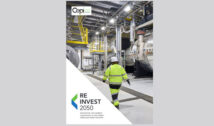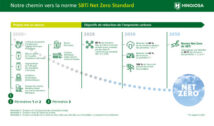
UPM will continue its efforts to initiate business-specific collective bargaining with the Paperworkers’ Union. Since spring, UPM has sought to enter into business-specific collective bargaining to negotiate flexible ways of organising work, working hours and salaries, as well as competence development within businesses with Paperworkers’ Union and employee representatives by business. However, the Paperworkers’ Union has not welcomed business-specific negotiations but has required a single company-level collective labour agreement.
If Paperworkers’ Union does not accept UPM’s businesses as contractual partner, the businesses need to prepare the working conditions after the turn of the year without collective labour agreement to ensure business continuity and payroll. UPM would then act according to the labour law, UPM practices and personal employment contracts.
“We do not wish it would come to that, but it is a better alternative than forcing our completely different businesses into one mould,” says Riitta Savonlahti, Executive Vice President, Human Resources, UPM.
This week, UPM has held discussions in various businesses with employee representatives and employees on the possible implications of operating without collective labour agreement, for example, in the mills’ working time system, pay structure and the role of employee representatives.
“With business-specific collective bargaining, we can offer better terms for everyone than without an agreement. Entering into agreements is our goal, and we hope that the negotiations can be initiated as soon as possible,” Savonlahti says.
Paperworkers’ Union is currently a negotiation partner for five business areas within UPM. Each UPM business has revenues corresponding to at least a medium-sized listed company, and their products, markets and operating environment differ significantly. “It is clear that one collective labour agreement would not fit for the traditional paper business and new businesses such as biofuels or the label business, where the service promise is 24/7,” Savonlahti notes.
For UPM, it is important to involve a much larger group of people in the negotiations. In addition to the union representatives, business management and local employee representatives would also be involved, bringing the much-needed understanding of business and the everyday work at the mills to the discussions.

































